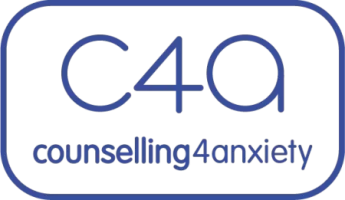Something so simple as the stories, the beliefs and the narratives that we tell ourselves, have a crucial part to play in affecting our moods on a long term basis. So, if I was to ask you how many times you say self-critical things to yourself, would you say that it is a regular occurrence in your life?
Through the counselling work that I do, it is clear that for many, the ‘inner voice’ that speaks within them, is one that is largely self-critical, harsh and ‘rules based’. It includes statements like, “I am not good at that”, or, “I can’t do this and I feel deficient”, or worse still, “I am useless and just wasting my time”. For many people, other ‘rules based’ thoughts are the root cause of their never ending anxiety and low moods; as though they are running against a treadmill in life that never stops giving putting negative thoughts in their way.
Having stringent internalised rules in the way that we speak to ourselves creates mental inflexibility and this can lead to mental health problems. It is therefore important to remember that the more mentally flexible we are, the greater our sense of well-being and our ability to deal with stress.
For example, how many of us take a ‘rules based’ approach to ourselves on a daily basis and say statements like this; “I must do this otherwise I will feel like a failure”. Alternatively, how about, “I should have done this earlier, what is wrong with me’. These two statements demonstrate the harshness that many of us speak to ourselves with and with each statement, we convey a sense to ourselves that we are deficient, incapable or lacking in some way. We would never say some of the things to others that we say to ourselves. It is as if, just because we speak to ourselves, we can be brutally harsh to ourselves.
Instead, one of the things I always say to clients is to be more self-compassionate with themselves. So for example, take the following statement, “I should have done this earlier and I am wasting time”, could be re-addressed internally by saying, “I would have liked to have done this earlier, but I understand that other things came in the way. I will try and get this done later”.
You can see the stark difference between the two statements and the way that one plays into a harsh sense of self-criticism. The more we do this to ourselves on a daily basis, the more we undermine our sense of self and our belief in ourselves, both of which lead to lower moods and higher anxiety states over time.
So, next time you catch yourself saying something critical about yourself, try ‘stepping back’ in your mind and just giving yourself the space to be able to rephrase any critical self-talk. Give yourself the space by adapting your language which can create a sense of mental flexibility, forgiveness and self-compassion. Remember, be kind to yourself in the way that you speak to yourself. It is truly the least that we can do for ourselves.

